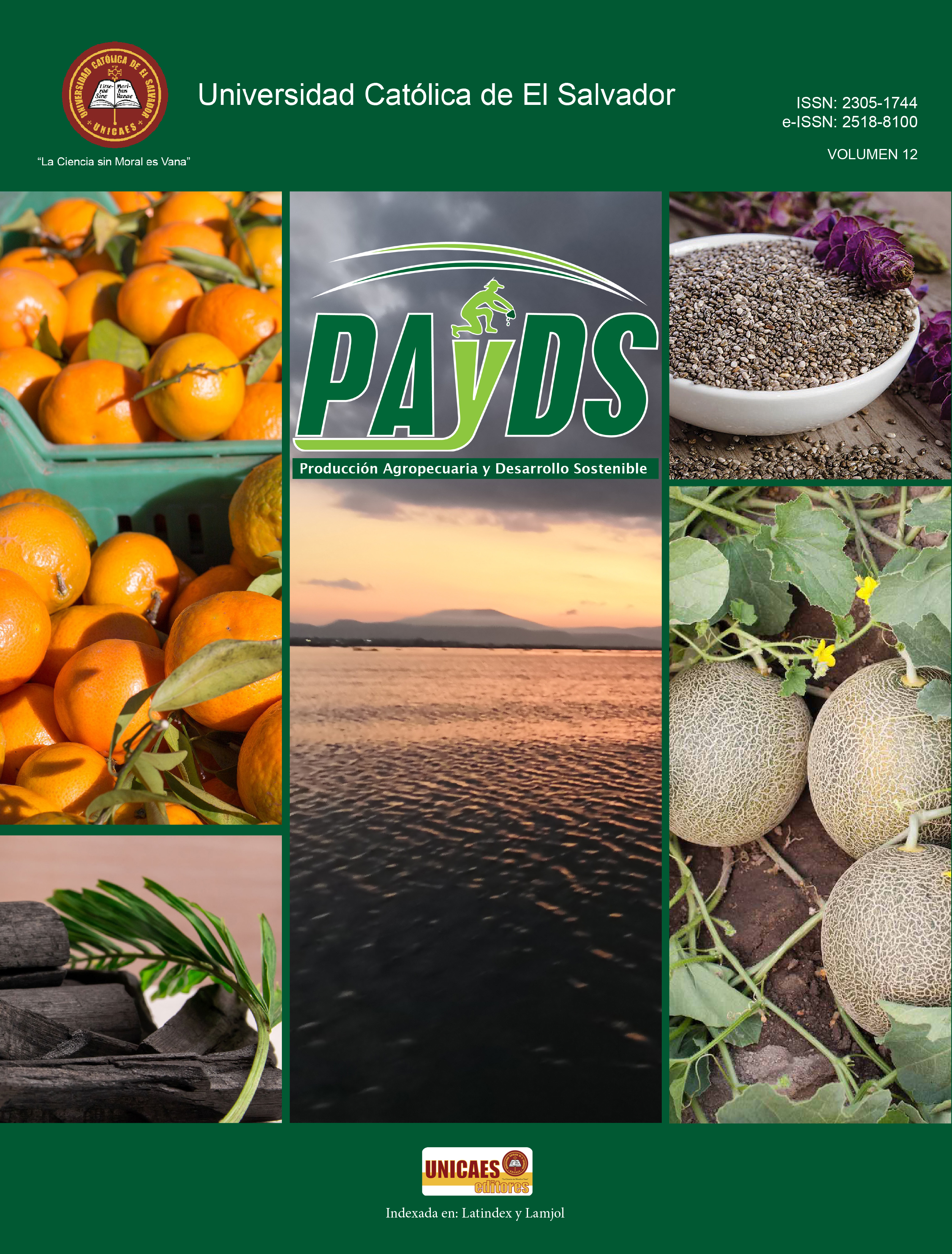Manejo, conocimiento y utilización de los residuos sólidos orgánicos en el tianguis de Ozumba Estado de México
DOI:
https://doi.org/10.5377/payds.v12i1.17419Palabras clave:
Desperdicio, impacto ambiental, mercado, seguridad alimentaria, alimentos, comercioResumen
Actualmente, el tianguis municipal ocupa un lugar importante en el comercio local y regional; sin embargo, esta actividad genera recurrentemente residuos orgánicos. El objetivo de este trabajo fue identificar las características sociodemográficas, manejo de residuos orgánicos y conocimiento del impacto ambiental. Se diseñó una encuesta con 26 preguntas divididas en tres categorías (sociodemográficos, manejo y conocimiento del impacto ambiental de los residuos orgánicos), aplicada a 100 vendedores regulares del tianguis. A los resultados obtenidos se les realizó un análisis descriptivo (promedio, desviación estándar y porcentajes), en donde se muestra que 53% de los vendedores son mujeres, generalmente con un promedio de 16.56 ± 11.5 años vendiendo en el tianguis. Los productos que más se comercializan son frutas (31%), verduras (27%) y hortalizas (17%). Los vendedores consideran que las verduras (37%) y frutas (36%) son las más perecederas, debido a su rápida maduración (27%) y a las condiciones climáticas (34%). El promedio de desperdicios generados del total de la muestra fue de 43.30 ± 84.3 kg, con una pérdida económica por puesto de $1,287.45 ± $4,208.00 pesos mexicanos semanales. Se concluye que es imperante generar estrategias de sensibilización del impacto ambiental y en la seguridad alimentaria que tienen los residuos orgánicos.
Descargas
513
Descargas
Publicado
Cómo citar
Número
Sección
Licencia

Esta obra está bajo una licencia internacional Creative Commons Atribución-NoComercial 4.0.
© Producción Agropecuaria y Desarrollo Sostenible
El copyright de los artículos se transfiere a la revista Producción Agropecuaria y Desarrollo Sostenible.
Como usuario de esta revista, usted posee:
● Acceso abierto para consultar la información contenida en este número
● Permiso para copiar, distribuir, mostrar, realizar o combinar las prácticas anteriores, en cuanto al uso de la información, siempre y cuando esta sea estrictamente sin fines de lucro.
Este revista utiliza una licencia CC BY-NC

Este obra está bajo una licencia de Creative Commons Reconocimiento-NoComercial 4.0 Internacional




